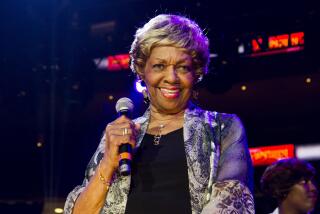Sam’s Song : SWORD OF...
Fifty years ago, in the public schools of Texas, I was taught that Sam Houston (Commander-in-Chief of the Army of Texas during its War of Independence against Mexico, conqueror of Gen. Santa Anna’s army at the Battle of San Jacinto, two-term president of the short-lived Republic of Texas, later U.S. senator and then governor of Texas) was my home state’s all-time hero--excluding, possibly, those 187 martyrs who in 1836 died at the Alamo, nothing assisting martyrdom half as efficiently as hopeless, romantic death.
What I was not taught about Sam Houston then would have filled any number of innocent schoolboy heads with shock, disbelief, anger, horror and perhaps--among the relative few preferring their history taught with the bark on rather than fumigated--surges of secret admiration for the complex, brawling, proud, egoistical, weird-drinking, tall-tale-telling, debt-ridden, theatrical, part scoundrel, part hero that Sam Houston in truth was.
Though Sam Houston’s darker secrets have long been in the public domain, he retains a firm grip on my native state’s affections and its need to hone its heroes and polish its legends. Fifty-odd celebrations are scheduled across the Lone Star State in this 200th anniversary year of Houston’s birth in rural Virginia, and I would wager a herd of longhorns that speakers rising to acclaim him will take great care to sanitize him.
A plethora of Sam Houston books--some new, some reissued--join the celebration. Of the three considered here, those by Marshall De Bruhl and John Hoyt Williams are cradle-to-grave biographies. Jeff Long’s novel concentrates on the Battle of San Jacinto, where Houston’s ragged Texas irregulars of about 750 men, after retreating for 40 days in what the soldiers themselves called the “Runaway Scrape,” caught Gen. Santa Anna’s troops at siesta time and butchered the superior forces within 20 minutes.
Using the poetic license of fiction, Long makes us privy to philosophical ruminations in Sam Houston’s head. In so doing, he perhaps paints him in more saintly hues than in those primary colors limiting biographers. But Long’s fiction also makes more gaspingly real the horrors and butcheries of battle, the disease and filth and mud of the field, than do the less passionate recitations of the nonfiction authors. And yet, if one would understand Sam Houston and his time, one must prefer the more complete reports of De Bruhl and Williams.
Sam Houston was nothing if not a walking contradiction. Though he fought secessionists and urged the preservation of the federal union rather than civil war, he died owning a dozen slaves and passed them on to his descendants. Though he lived with the Cherokees--even marrying one--and championed the honoring of Indian treaties, he was as one with his mentor and personal hero, Andrew Jackson, in the policy of removing Indian tribes from their historic lands and sending them to lesser pastures when they inconvenienced white-settler expansions. And though he battled for certain Indian rights in hostile corridors of Washington, he was not above profiting as an Indian trader and may well have sold them forbidden whiskey.
Sam Houston’s oratorical flights invoked liberty and justice with every breath, yet he was an unabashed expansionist who believed that the Florida Purchase from Spain could be interpreted as including huge land masses all the way to the Pacific Coast. His defeat of Mexico, as head of the Texas Army, eventually permitted the United States to claim and settle all or part of 10 new states. Even as he publicly spoke of the glory of the Republic of Texas while serving as its first president, he privately wrote to President Jackson of his desire to see Texas annexed, and of his doubts that Texas could maintain its independence: “I am free to say to you that we cannot do it. I look to you as the friend and patron of my youth and the benefactor of mankind to interpose in our behalf and save us.”
This man of many parts was capable of joining the Catholic Church--in order to qualify as a landowner in Mexican Tejas--while simultaneously filing for a divorce from one of his three wives. And though he wrote moony letters and florid poetry to each of his wives in turn, professing great love and agony over being apart from them, through a combination of wanderlust, ambition and answering history’s call (to say nothing of wenching and drinking) he was so rarely home that he missed the births of four of his eight children.
For almost the span of his life (1793-1863), Houston had trouble sustaining relationships with family and friends. He was prone to quit homes, jobs, businesses or elective offices when faced with rejection or when things did not go his way; almost always he sought solace in the bottle and in wanderlust.
That was his solution when he first joined the Cherokees, as a teen-ager, rather than clerk in a store with his siblings (whom he ignored for the rest of his life). When his first wife, Eliza Allen, left him after a brief, tense marriage still surrounded by mystery, he resigned as governor of Tennessee and left the state. He quit the Cherokees when denied a seat on the tribal council, striking his Indian “father,” Oo-Loo-Te-Ka, when the old chief had the temerity to chastise him for excessive drinking.
He quit the peace-time U.S. Army following the War of 1812 when accused of misconduct, and quit as an Indian trader when political enemies accused him of improprieties. He resigned a U.S. senate seat late in life to win the governorship of Texas, then forfeited that chair by refusing to take the Confederate loyalty oath. In his many withdrawals from the field, Houston seems to have been equally motivated by pique, by principle and--sadly--by an almost mystical faith that drink could wash away his current miseries.
John Hoyt Williams tells us that Sam Houston was not alone in his great thirst: “The first thirty years of the century saw the greatest (annual) per-capita consumption of spirits in U.S. history, and by 1830 the average American was lustily quaffing an astounding five gallons of whiskey or its equivalent. Since many abstained and many more were too young to tipple, the real figure for adults, especially males, must have been horrifying.”
Williams also notes the drunken White House party celebrating the inauguration of Andrew Jackson, and that Sen. Daniel Webster and James Monroe’s vice president, Daniel D. Dawkins, were often publicly drunk at their official stations. “In this vast bacchanal,” writes Williams, “Sam Houston was a legendary reveler.” Little wonder that the Cherokees, who gave Houston the admiring name “The Raven”, came to call him by the sobriquet “Big Drunk.”
His large warts aside--including fighting duels, brawling, caning an Ohio congressmen, baiting his enemies with a merciless tongue--there can be no doubt of Houston’s great accomplishments of state, his bravery on the battlefield and in the political arena. To prevent hotheads from invading Mexico when Texas was a weak and toddling republic, he furloughed the Texas Army and thus kept the peace. He held the republic together for a decade when it was broke, sparsely populated and threatened, then saw it safely into the federal union.
While others spoke admiringly of the Alamo’s martyrs, Houston--whose orders to burn the Alamo and retreat had been disobeyed--saw them as fools who had sealed their own fate by “forting up” in a place where they could not receive supplies or reinforcements. While Texicans of the day preened themselves over having defeated Mexico, he bluntly noted that only one-fourth of its able male population had answered the call to arms. And in urging that Texas and the Dixie states would avail nothing but grief should they secede from the union, he was on the mark.
These and other controversial opinions and actions cost Houston dearly; he was mocked by mobs, attacked in the press, vilified by political rivals--including Mirabeau B. Lamar, John Calhoun, John Quincy Adams, Zachary Taylor and Anson Jones--gleefully returning their insults in kind. He suffered great pains for life from wounds received as a U.S. soldier at the Battle of Horseshoe Bend in 1814, and again in 1836 at the Battle of San Jacinto; a groin injury remained a “running sore” until he died, and bone chips worked out of his collarbone and leg almost to the last.
As with a later Texas leader, Lyndon B. Johnson, Sam Houston was vain, hot-tempered, theatrical, obsessed, at once much loved and much reviled. In the final analysis, however, he towered over his time and deserves the designation “hero” of Texas and of the nation.
More to Read
Sign up for our Book Club newsletter
Get the latest news, events and more from the Los Angeles Times Book Club, and help us get L.A. reading and talking.
You may occasionally receive promotional content from the Los Angeles Times.









